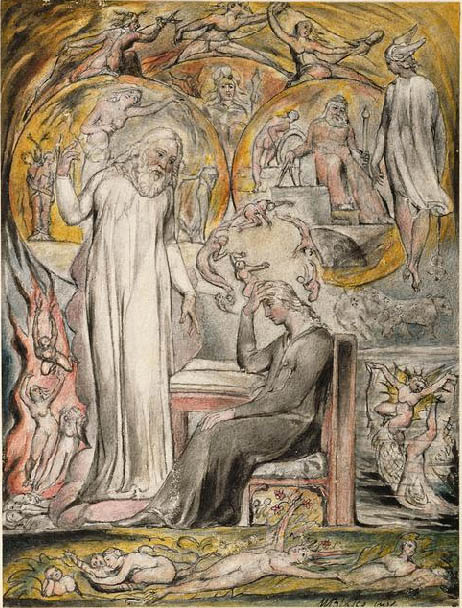Blake’s Plato
Reponding to Nicholas Graham’s post
I certainly agree that Frye’s reading of the Bible is guided by typology and that there is a certain prophetic power in his biblical criticism. I was by no means trying to give a full account of Frye’s reading of the Bible. My remarks were in the context of the earlier posts about the meaning of the phrase “literary criticism of the Bible.” All I was trying to suggest was that Frye’s approach relies on two fundamental literary principles, myth and metaphor or narrative and image––the mythos and dianoia that Frye devoted so much space to in Anatomy of Criticism. Typology and prophecy, as I understand those terms, are terms from biblical, rather than literary, criticism. I agree also that “vision” is also absolutely central to Frye’s enterprise, and I wrote a fairly long chapter in my book on Frye and religion (89–125) trying to make a case for its centrality and relating it to terms such as “insight,” “enlightenment,” “epiphany,” “recognition” and (the central visionary faculty) “the imagination.” But again “vision” is a term that does not spring from the vocabulary of literary criticism, though it is perhaps obliquely connected to Aristotle’s opsis. No one would want to reduce Frye’s reading of the Bible to myth and metaphor. But they are literary principles, and so no one would want to ignore them either. As I understand Frye, “vision” and “prophecy” belong to what I called the Bible’s centrifugal, kerygmatic thrust.

